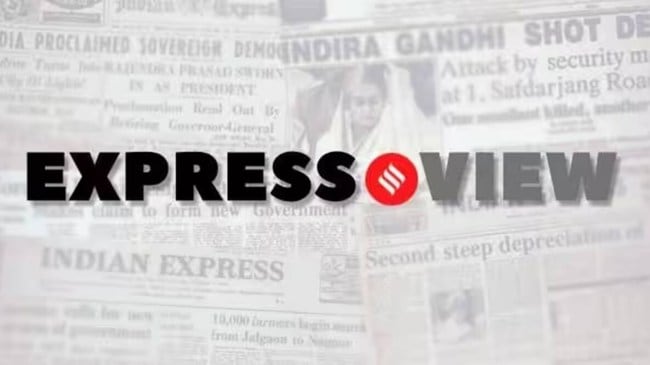Opinion In Delhi riots case, fabrication of evidence and witness statements by Delhi Police dent credibility of justice system
With a cloud over the investigations, a modicum of closure for the victims will remain elusive. The Delhi Police must be held accountable for its shortcomings.
 During the Delhi riots, questions were raised about the police's lack of action.
During the Delhi riots, questions were raised about the police's lack of action. Five years after more than 50 people were killed in one of the worst communal riots in the national capital, the wheels of justice appear to be moving slowly. As of August 2025, of the 695 cases of rioting, arson, and unlawful assembly filed by Delhi Police, verdicts have been pronounced only in 116, with 97 acquittals. In themselves, these figures paint a dismal picture of investigative and prosecutorial failures and judicial delays. They are, unfortunately, only a prologue to a more disturbing story. An investigation by this newspaper has found that in at least 93 of the 97 acquittals, courts pointed out procedural lapses and, in some cases, outright fabrication of evidence and witness statements by the Delhi Police. Judges have pulled up investigating officers for “padding evidence”, preparing false statements to “belatedly solve the case”, and “dictating” witness statements. Both in themselves and as part of a broader pattern in the Delhi riots cases, the actions of the police dent the credibility of the justice system.
During the Delhi riots, questions were raised about the police’s lack of action. At times, the conduct of its personnel invited even more serious allegations. Last year, for instance, the Delhi High Court accused the police of being “driven by a bigoted mindset” after no action was taken against policemen who were seen in videos beating up a young man during the riots. In times when tension between communities runs high, the police must not be seen as doing anything that shows it as prejudiced — anything less also threatens to violate the fundamental promise of the Constitution and the rule of law. The Delhi Police was not always faithful to that principle during the riots in the city. As Additional Sessions Judge Parveen Singh pointed out while acquitting six people, there has been “a serious trampling of the rights of the accused… Such instances lead to serious erosion of the faith of the people in the investigating process and the rule of law.” That none of the officers have faced criminal action for lying to the court points to the lack of enforcement of anti-perjury laws, and a broader lack of accountability where it is needed most — among those meant to uphold the law.
The Unlawful Activities (Prevention) Act has been deployed in several of the riots cases. The Act’s stringent provisions relax the burden of proof and make bail for the accused extremely difficult. In some cases, the police and prosecution have sought, questionably, to link the Delhi riots with the 2020 protests against the Citizenship Amendment Act (CAA), and even equated the latter with terrorism. At the same time, the poor conviction rate in the fraction of cases in which a verdict has been pronounced is a marker of the deficiencies and inefficiencies of the criminal justice system as a whole. With a cloud over the investigations, a modicum of closure for the victims will remain elusive. The Delhi Police must be held accountable for its shortcomings. It must course correct.






